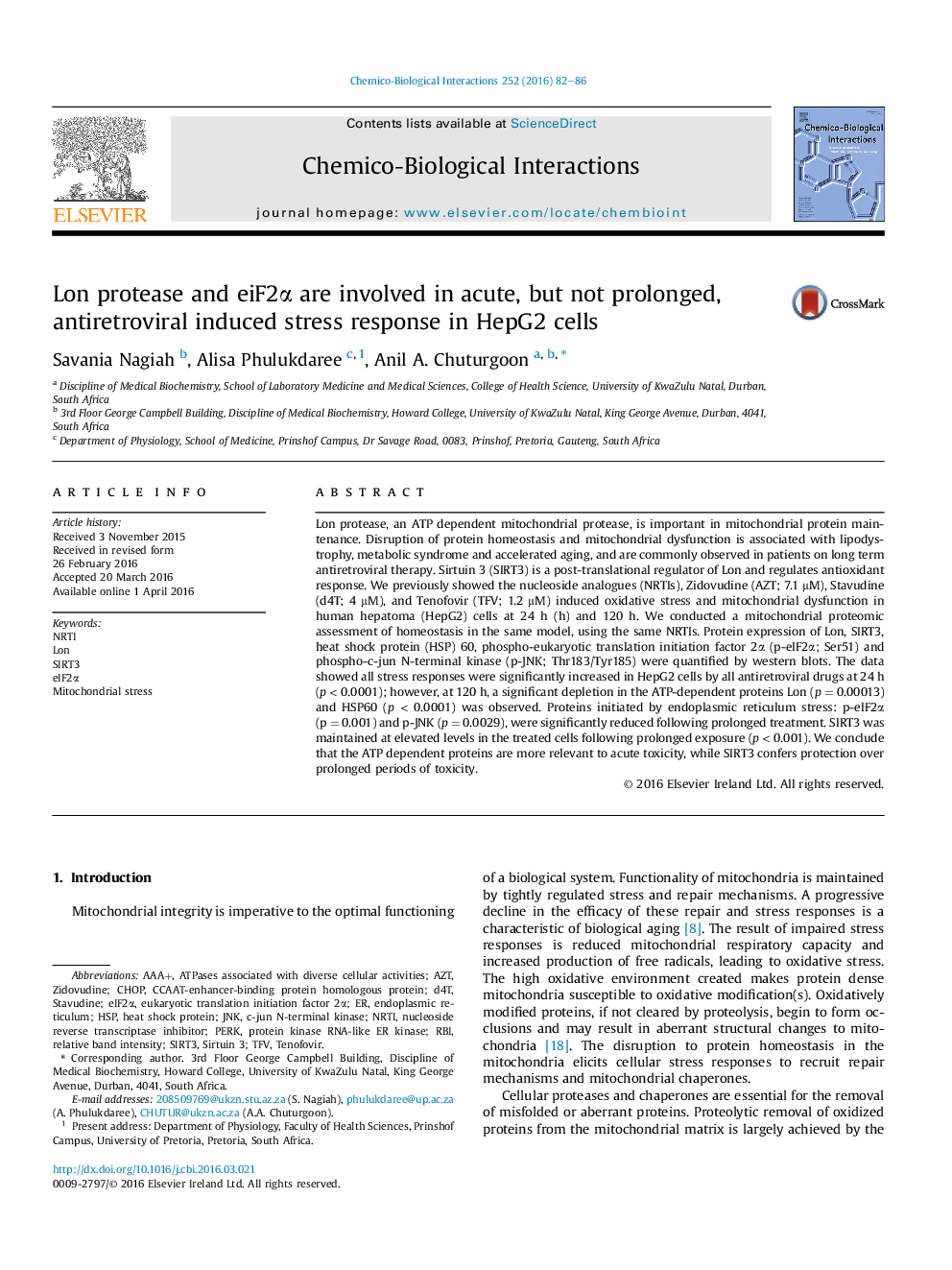| کد مقاله | کد نشریه | سال انتشار | مقاله انگلیسی | نسخه تمام متن |
|---|---|---|---|---|
| 2579871 | 1561589 | 2016 | 5 صفحه PDF | دانلود رایگان |
• Antiretroviral (ARV) drugs cause oxidative stress and affect protein homeostasis.
• Lon, SIRT3 and HSP60 are required for mitochondrial protein maintenance.
• ER stress protein eIF2α is linked to Lon and HSP60 recruitment.
• Acute ARV exposure induce ATP-dependent stress proteins (Lon, HSP60, eIF2α).
• SIRT3 is NAD+ dependent and is sustained in chronic ARV exposure in HepG2 cells.
Lon protease, an ATP dependent mitochondrial protease, is important in mitochondrial protein maintenance. Disruption of protein homeostasis and mitochondrial dysfunction is associated with lipodystrophy, metabolic syndrome and accelerated aging, and are commonly observed in patients on long term antiretroviral therapy. Sirtuin 3 (SIRT3) is a post-translational regulator of Lon and regulates antioxidant response. We previously showed the nucleoside analogues (NRTIs), Zidovudine (AZT; 7.1 μM), Stavudine (d4T; 4 μM), and Tenofovir (TFV; 1.2 μM) induced oxidative stress and mitochondrial dysfunction in human hepatoma (HepG2) cells at 24 h (h) and 120 h. We conducted a mitochondrial proteomic assessment of homeostasis in the same model, using the same NRTIs. Protein expression of Lon, SIRT3, heat shock protein (HSP) 60, phospho-eukaryotic translation initiation factor 2α (p-eIF2α; Ser51) and phospho-c-jun N-terminal kinase (p-JNK; Thr183/Tyr185) were quantified by western blots. The data showed all stress responses were significantly increased in HepG2 cells by all antiretroviral drugs at 24 h (p < 0.0001); however, at 120 h, a significant depletion in the ATP-dependent proteins Lon (p = 0.00013) and HSP60 (p < 0.0001) was observed. Proteins initiated by endoplasmic reticulum stress: p-eIF2α (p = 0.001) and p-JNK (p = 0.0029), were significantly reduced following prolonged treatment. SIRT3 was maintained at elevated levels in the treated cells following prolonged exposure (p < 0.001). We conclude that the ATP dependent proteins are more relevant to acute toxicity, while SIRT3 confers protection over prolonged periods of toxicity.
Figure optionsDownload as PowerPoint slide
Journal: Chemico-Biological Interactions - Volume 252, 25 May 2016, Pages 82–86
